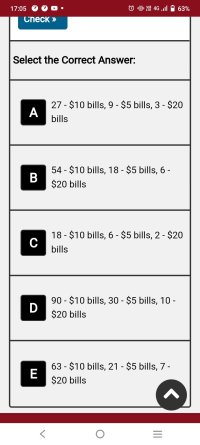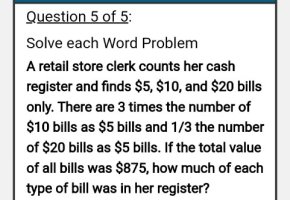The question and the answer to the question is said to be 'e'
My solution which i attempted was something like this
Let the number of 5 dollars be x
Number of 10 be 3x
And number of 20 be 1/3 *x which is is x/3
So 5.x+10. x. 3+20 . x/3=875
5x+30x+ 20x/3=875
35x . 3+ 20x/3- 125x
The ultimate answer is 875/125 which shows x is equal to 7 but the answer is something else can some please help?
My solution which i attempted was something like this
Let the number of 5 dollars be x
Number of 10 be 3x
And number of 20 be 1/3 *x which is is x/3
So 5.x+10. x. 3+20 . x/3=875
5x+30x+ 20x/3=875
35x . 3+ 20x/3- 125x
The ultimate answer is 875/125 which shows x is equal to 7 but the answer is something else can some please help?
Attachments
Last edited:


